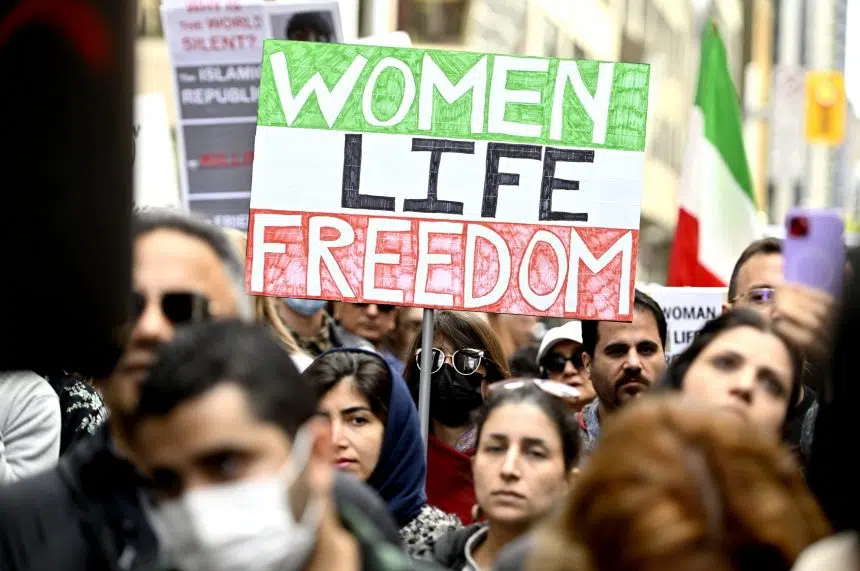The Saskatoon Iranian Cultural Association is standing in solidarity with those in Iran who are protesting the repression of women’s rights.
The protests have been going on for the last several weeks, after 22-year-old Mahsa Amini died Sept. 16. She had been arrested by what’s termed the “morality police” for allegedly wearing her head scarf too loosely.
Pooyan Arab, a spokesperson for the association, said the “morality police” loosely translates to subjective “fashion police,” who regulate how women — and to a lesser extent, men — dress in Iran.
“The majority of the focus is on women,” he added.
Arab said his group supports the Iranian people in their goals of enjoying the same freedoms as Canadians.
“The killing of Mahsa Amini sparked a problem that women in Iran have been facing for the longest time. This was not the first incident, but it is definitely I think at the point that women and even the general population in Iran is not willing to put up with it anymore,” he said.
According to videos posted to social media, many women have been taking off their hijabs — or head scarves — in defiance of Iranian law and burning them in protest. Some are also cutting off their hair.
Arab said the fact that women are tired of living under laws where they don’t have equal rights in many cases is something that is going to affect everyone in the country.
The protests, he said, also remind him and other Canadian Iranians of what they had to live through before they came to Canada.
“I have my immediate family here, my parents, but everyone else is in Iran. How can I not be worried about what happens? I have family, students … teaching in (a) university, and my friends,” he added.
According to reports, the Ayatollah Khamenei has blamed several western countries for the unrest in his country, something Arab’s organization is also speaking out against.
“I think this is a deflection. The reality is that this is the Iranian people who are on the street. Saying the U.S. is behind this … I would expect the Canadian, the U.S. governments to be much harsher on Iran. They’re very lenient in their approach to the Iranian government,” he said.
“It is not only insulting, it’s infuriating to see that our youth are getting killed on the street.”
But before things get better, he sees an escalation occurring.
“It doesn’t seem to be easy for the government to extinguish the flames of this one,” he said. “I do think this time it’s serious.”
He said international pressure to stop the killings is paramount, otherwise the Iranian government will continue.
“Not only is this not democratic … it’s a catastrophe for the Iranian people,” Arab said. “If you see a government that is willing to do this to their own people, you can just only assume what they would do to someone they see as an enemy outside of Iran.”
Ideally, Arab would like to see sanctions that directly target the Iranian government with minimal impact on people, along with strong condemnation from Canada and other western countries.







